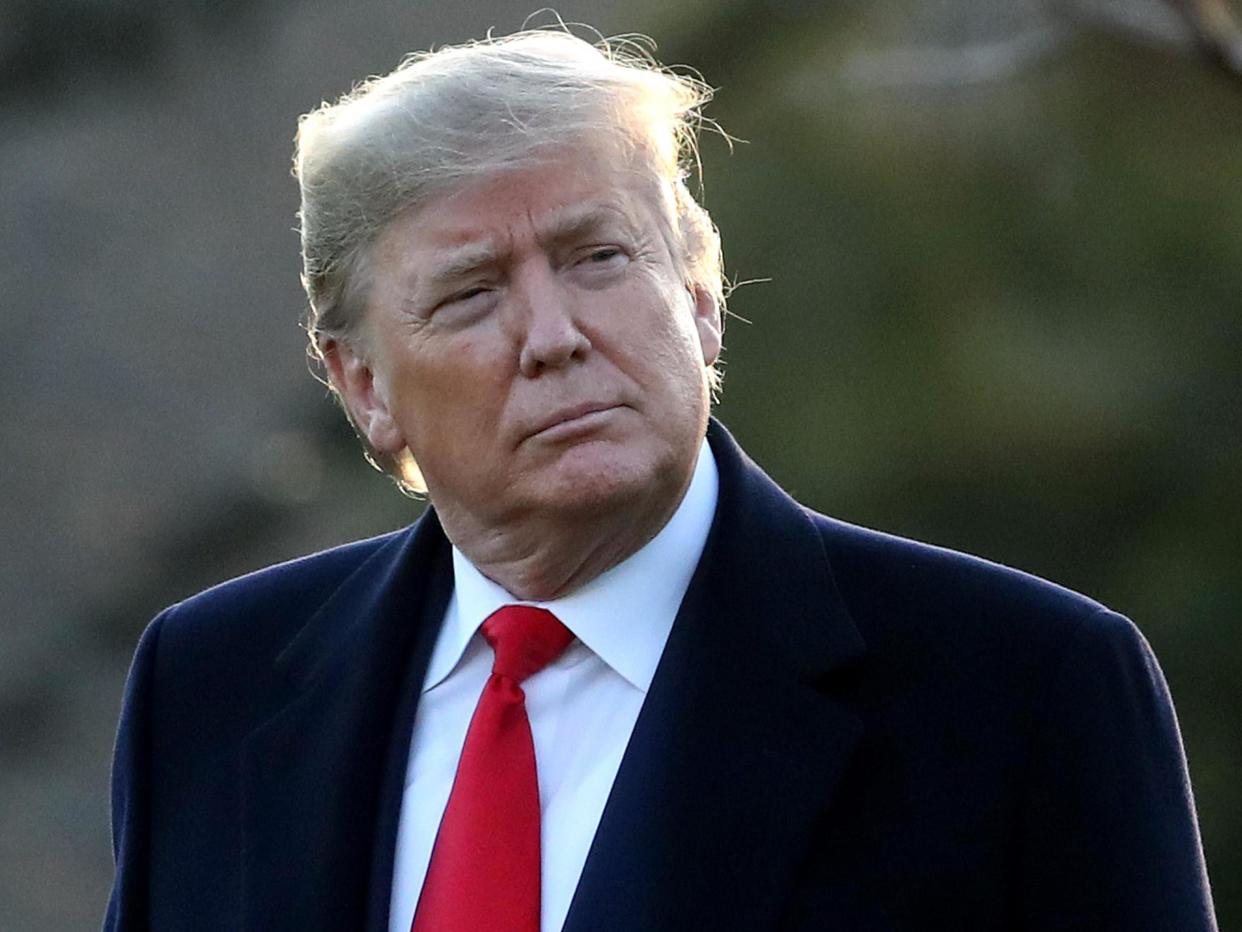Trump claims to be 'dealmaker not warmonger' after killing top Iranian general and increasing tensions across Middle East

Donald Trump has claimed he is a “not a warmonger” but a “dealmaker” - days after ordering the killing of Iran’s top general Qassem Soleimani and escalating tensions between the Middle Eastern country and his own.
Sharing quotes from a sympathetic article by New York Post columnist and Fox News pundit Michael Goodwin, who described Mr Trump as someone who takes the military action only as a “last resort”, the American leader wrote: “Could not have said it better myself”.
In an op-ed titled “Trump’s peace through strength philosophy is what America needs”, Mr Goodwin wrote of the Iran deal fostered by Barack Obama and then-secretary of state John Kerry: “The Agreement didn’t create opportunities for America and other signatories to confront Iran’s malign activities. It overlooked and then helped to fund them.
“And zero progress was made on curbing those activities, until Trump droned Soleimani… Plainly, Trump is not a warmonger. He’s a deal maker & his record is that of someone who uses our military might as a deterrent, unleashes it with discretion, and only as a last resort.”
Mr Trump added: “Thank you to the great Michael Goodwin. Could not have said it better myself!”
Since ordering Soleimani's assassination, the US president has threatened to bomb Iranian cultural sites and forcibly steal oil from the country – both of which would amount to war crimes.
There have also been questions raised about his claim that the US killed the Iranian general because he had been plotting to attack for US embassies.
Mark Esper, the US defence secretary, admitted on CNN on Sunday he had not seen evidence to support Mr Trump’s claim that Soleimani had been actively plotting imminent attacks at the time of his death.
In an interview on Fox News’s Laura Ingraham on Friday, the president said he stood by his decision to strike the general because of an imminent threat to the US embassy in Baghdad. He added: “I can reveal that I believe it probably would’ve been four embassies.”
However, no details details of the purported plots have been made available to members of congress during intelligence briefings, while a senior administration official told The Washington Post they were only aware of a vague plan against one embassy in Baghdad.
Speaking on CNN's Face the Nation, Mr Esper suggested president’s statement sounded “more like an assessment than a specific tangible threat with a decisive piece of intelligence”
Asked if he had seen any proof of the plots the president had put forward to justify the attack, the defence secretary added: “I didn’t see one with regard to four embassies. What I’m saying is I shared the president’s view that probably, my expectation is, they were going to go after our embassies.”
It comes as a new poll suggests a majority of Americans feel their country is less safe following the president’s decision to kill Soleimani.
Attitudes sharply differed along party lines in the ABC News/Ipsos poll conducted over the weekend. While 52 per cent of respondents said the attack on Iran’s top general had made the US less safe, a majority of Republicans - 54 per cent - said they felt safer after the drone strike.
Read more
Majority of Americans feel less safe under Trump after Iran, poll says

